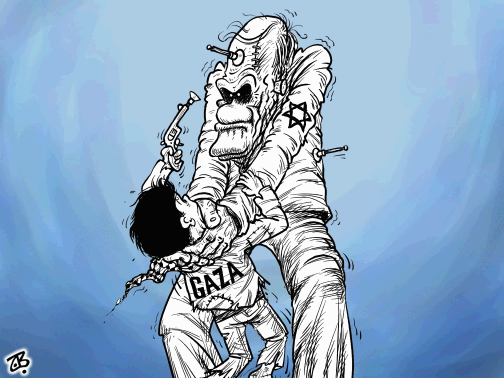Search
Democracy Links
Member's Off-site Blogs
the shoah legacy .....

It isn't long since Burg was a blue-chip member of that same Zionist establishment. The son of a long-serving government minister, from the time of David Ben-Gurion's government, he has a classic top-drawer Israeli profile.
True, he was on the left: after army service as a paratroop officer and graduating from Hebrew University he was a star of the movement against the first Lebanon war – his charisma if anything enhanced by the fact than unlike many of his comrades he was religious.
He was injured in the grenade attack by a right-wing fanatic on a Peace Now protest in 1983 which killed another demonstrator, Emil Grunzweig. But he was quickly swept into mainstream public life, becoming first an adviser to the then Prime minister Shimon Peres, then a Knesset member, then Speaker of the Knesset, head of the Jewish agency and the World Zionist Organisation and the almost-victorious candidate for the Labour Party leadership in 2001.
It was not until his last year as a Knesset member that he began to build a reputation as something of an enfant terrible in Israeli intellectual and political life.
In 2003 he wrote a widely publicised and much argued-over piece in Israel's mass circulation Yedhiot Ahronot in which he said that Israel had to choose between "racist oppression and democracy" and that "having ceased to care about the children of the Palestinians, should not be surprised when they come washed in hatred and blow themselves up in the centres of Israeli escapism".
But his book The Holocaust is Over: We Must Rise from its Ashes – published this week in Britain – caused a much bigger sensation when it came out last year in Israel, at once becoming a best-seller and provoking a furious reaction not only from the right but from many of Burg's former colleagues on the political centre-left.
In the book – a compelling mix of polemic, personal memoir, homage to his parents and meditation on Judaism – Burg argues that Israel has been too long imprisoned by its obsessive and cheapening use – or abuse – of the Holocaust as "a theological pillar of Jewish identity".
He argues that the living role played by the Holocaust – Burg uses the regular Hebrew word Shoah or "catastrophe" for the extermination of six million Jews in the Second World War – in everyday Israeli discourse, has left Israel with a persistent self-image of a "nation of victims", in stark variance with its actual present-day power.
Instead, the book argues, Israel needs finally to abandon the "Judaism of the ghetto" for a humanistic, "universal Judaism".- By John Richardson at 3 Nov 2008 - 10:16pm
- John Richardson's blog
- Login or register to post comments
Recent comments
4 hours 24 min ago
5 hours 8 min ago
5 hours 28 min ago
5 hours 35 min ago
5 hours 46 min ago
7 hours 53 min ago
8 hours 32 min ago
10 hours 44 min ago
12 hours 33 min ago
16 hours 44 min ago